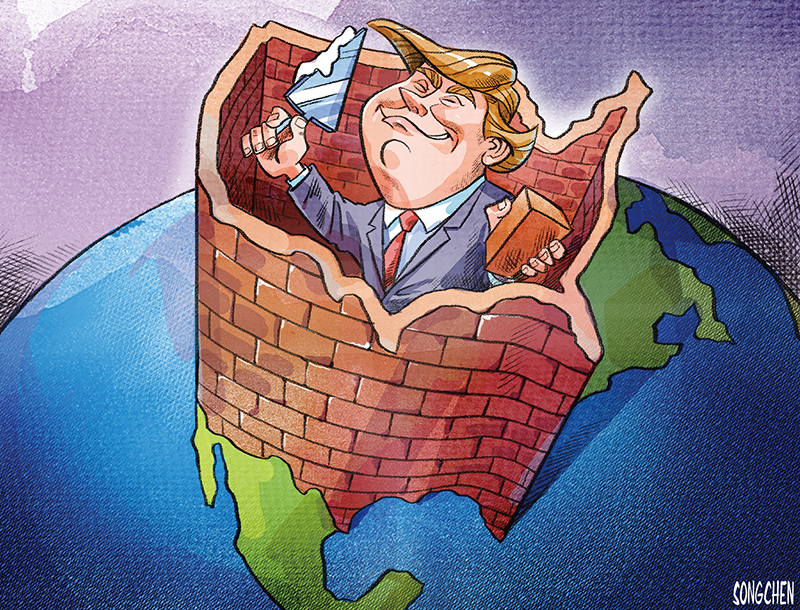
The Global Outlook Darkens
Last weekend, Henry Kissinger openly described his pessimism about the global situation, which is marked by constant tension. The International Institute for Strategic Studies in London and the Washington Strategy Center echo his concerns: The system of alliances and partnerships that has served as the foundation of international order for over 70 years is fracturing under internal and external pressures.
The most dangerous current crisis is due to North Korea's nuclear armament and intercontinental ballistic missile testing, despite warnings from Washington, criticism from Beijing, and sanctions from the United Nations.
The Russian Federation is consolidating its positions in the Middle East, where it has become a major player due to its military operations in Syria. It is not seeking a solution in Ukraine and it is attempting to destabilize Western democracies via cybernetic interventions, misinformation campaigns, and military actions on its borders.
America Retreats; China Advances
The inconsistency of the unpredictable U.S. president has weakened the security of Washington's European and Asian allies, undermined free trade (withdrawal from the drafting of the Trans-Pacific Partnership treaty and abandonment of the Trans-Atlantic treaty), and harmed multilateral institutions (the U.N., World Trade Organization, and NATO). President Trump has proven to be indifferent to the fundamental values that shaped the postwar world, such as the rule of law, democracy, human rights, and open trade. He does not hesitate to associate with authoritarian regimes (Egypt, Turkey, Thailand, the Philippines) without ever mentioning their antidemocratic practices.
By accelerating America's retreat from the world stage, Trump supports China's rise to power as it increasingly asserts itself on the international scene, all while rearming itself. China is also extending its influence in Africa and Latin America – continents neglected by American politics. China's claims to the waters and reefs of the China Sea are supplemented by the pursuit of strategic, political, and economic interests via the "Belt and Road Initiative."*
The ambition to physically reshape Central Asia is based on a de facto alliance with Russia and Pakistan, which bears significant resemblance to the alliances among the U.S., India and Japan. In Afghanistan, the United States' civil and military engagement is unlikely to change the course of the war against the Taliban.
Impacts in the Middle East
In the Middle East, Iran has won the war in Syria, thanks notably to Russian intervention, as well as all sorts of movements participating alongside the great battle against the Islamic State. Tehran has opened a royal route from the Gulf to the Mediterranean, linking the Shiite territories from Iraq to Lebanon and strengthening its Lebanese Hezbollah allies.
What's more, Iran is taking advantage of its rivalry with Saudi Arabia, which is entangled in Yemen and is imposing its own goals in Qatar, and which understood how to play off of the blockades imposed by its neighbors. If the American president is released from the nuclear arms deal with Iran, Tehran will eventually revive its nuclear program, increasing the risk of war in the region.
Europe in Retreat
Europe is being strengthened: Growth has resumed, and the populist danger is out of sight for the moment. But although it's been tamed in France and in the Netherlands, it is flourishing in Germany, which will not fail to compromise the projects led by President Macron. He is the champion of European revival, but he is far from having established his leadership with concrete achievements.
In fact, Europe remains largely defensive and isolated because of the nationalist withdrawal of the United States and the information war being waged by Russia. Europe is also exposed to major global trends: nuclear proliferation, Chinese expansion, and radical Islamic terrorism.
*Editor’s note: China’s “belt and road” initiative involves China underwriting infrastructure investment in countries along the old Silk Road linking it with Europe.


